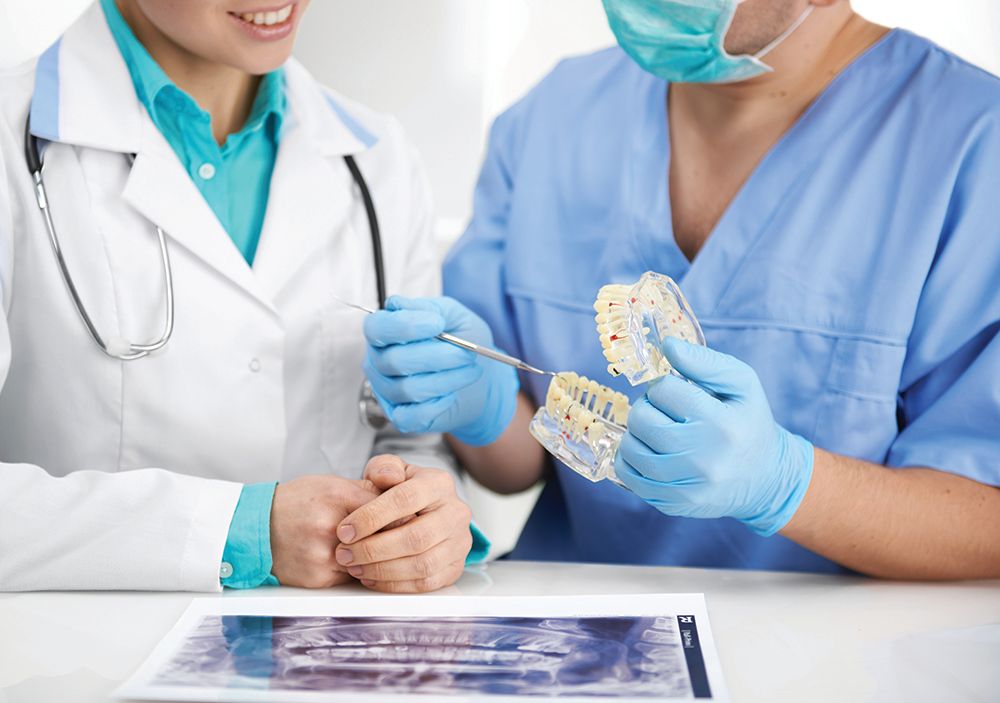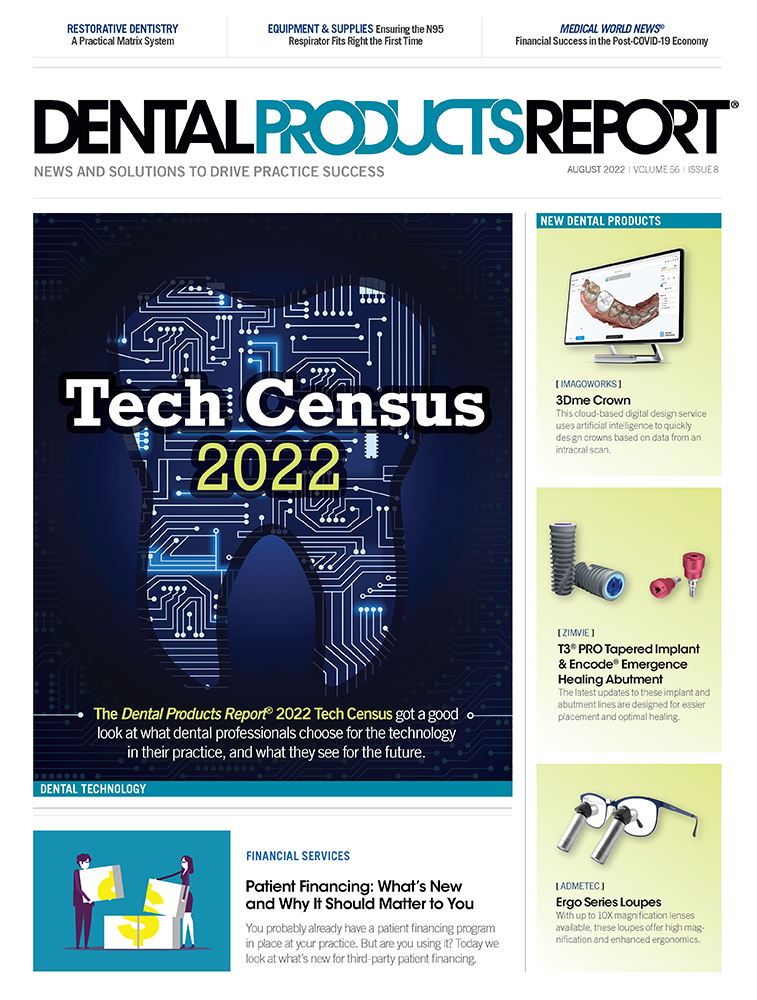The List: 5 Tips for Top Collaboration Between Dentists and MDs
Here, experts share tips on how best to ensure this critical collaboration between dentists and MDs is always taking place in an effort to deliver the best possible care to your patients
STASIQUE / STOCK.ADOBE.COM

By now, most people understand the systemic links between oral health and overall health. Many studies have indicated oral health is a leading health indicator. Healthy People 2020 identified oral health as one of the 10 leading health indicators, along with other indicators such as access to health care, nutrition, cancer, HIV, and heart disease. Good oral health not only enables you to functionally perform as a human being in terms of the ability to speak, smile, smell, and eat, it is also important for communication, relationships, and financial prosperity. Poor dental health has serious consequences, including painful, disabling, and costly health conditions.1
With this in mind, we know communication and collaboration between dentists and MDs is critical. Here, experts share tips on how best to ensure this critical collaboration is always taking place in an effort to deliver the best possible care to your patients.
1. “MDs receive less than 8 hours of oral health training, mostly on diet and the number of primary and permanent teeth. According to the American Association of Medical Colleges, MDs are supposed to receive 24 hours of training on oral health. The good news is that I routinely receive referrals for new patients from my colleagues who are pediatricians, cardiologists and orthopedic surgeons because they want to have the oral cavity in a healthy state before they do surgery or refer for surgery,” says Margaret Scarlett, DMD.
“The best way to collaborate is to provide them with referral forms, and I even use teledentistry to do a consult for them while the patient is in their office so we can talk about preventing dental disease and ensuring good oral health. The MDs really like how easy it is to do, especially with small children sitting comfortably on the mom’s lap and seeing me without personal protective equipment (PPE).”
Dr Scarlett works with physicians all the time and “adores a whole person approach” that she has with them.
2. Chris Kammer, DDS, FAAOSH, suggests dentists conduct C-reactive protein tests in the office and use the results to collaborate with MDs.“The mouth is the #1 source of chronic inflammation in the entire body. The cumulative burden of systemic inflammation can be screened with a dental office-delivered C-reactive protein test and can identify patients at high risk for heart attack. That’s a good place to start the discussion with an MD,” says Dr Kammer, the Founding Father of the American Academy for Oral Systemic Health.
3. Casey Hein BSDH, RDH, MBA, of the dental education company Casey Hein & Associates, states that today plenty of patients, dental team members and physicians are well aware of the connections between oral and overall health. Because of this it’s easier to strike up the critical conversations and begin the impactful collaboration process.
“There has been a plethora of articles about the threat periodontitis poses to overall health published in many prestigious medical journals over the last decade,” Hein says. “Consequently, physicians, nurses, and other non-dental healthcare providers now ‘get it’ and welcome the opportunity to collaborate with dentists and dental hygienists to co-manage patients with inflammatory-driven systemic conditions complicated by periodontal disease activity. The best example of this is a patient with poorly-controlled diabetes and periodontitis. So, don’t be timid about initiating a collaborative relationship.”
4. Charles Whitney, MD, of Revolutionary Health Services, is not a dentist but someone who is passionate about working with the industry on this topic.
“My role as a KOL in dentistry for the past 10 years has been inspiring dentists to collaborate with physicians,” he explains. “There is an opportunity for dentists now available that is very powerful to inspire collaboration as well as treatment acceptance from patients. It is to get certified in dementia prevention and reversal by a medical organization. Following that, certified practices are directly introduced to medical practices to inspire collaboration.” More information on this can be found at completehealthheroes.com.
5. Geralyn Beers RDHBS, FAAOSH, offers up this tip: Get into to the medical practitioner’s world.
“There is peer reviewed evidence that cognitive decline is preventable and reversible. Medical practitioners and health coaches certified in the method are learning that oral health is a significant contributor to cognitive decline and that they should find a certified dental practice to whom they can send patients. Get your practice certified in ReCODE 2.0 for Dental Practitioners,” says Beers, Chief Operating Officer, Complete Health Heroes.
Reference
1. Surprising connections between oral health and well being. University of Illinois Chicago College of Dentistry. January 14, 2019. Accessed July 19, 2022. https://dentistry.uic.edu/news-stories/the-surprising-connections-between-oral-health-and-well-being/
